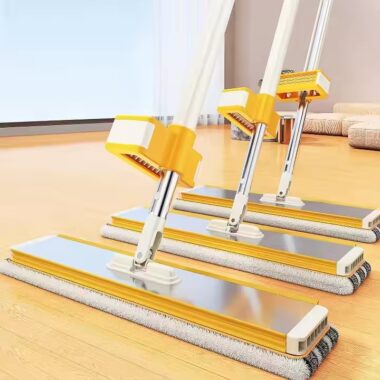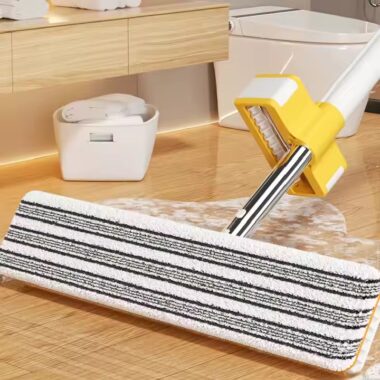✅ Introduction
Wholesale buyers often face the challenge of balancing price, quality, and delivery schedules when sourcing cleaning tools. Mops, as one of the most demanded cleaning products, require careful planning. Understanding how wholesale mop solutions work—from pricing models to MOQ (minimum order quantity) and delivery terms—can help businesses secure stable supply chains and competitive offers.
➡️ Pricing Models in Wholesale Orders
Pricing is the first factor buyers evaluate. Unlike retail, wholesale pricing depends on several elements:
-
Order Volume: Larger orders usually reduce unit costs significantly.
-
Material Choice: Cotton, microfiber, sponge, or polyester all come with different cost structures.
-
Customization Level: Adding private labels, colors, or upgraded handles may increase costs.
-
Market Region: Export destinations can affect shipping, duty, and final landed cost.
A professional mop factory provides transparent pricing structures, helping buyers plan margins effectively.
⭐ Understanding MOQ Requirements
MOQ (Minimum Order Quantity) is a common term in wholesale procurement. Mop suppliers set MOQs to balance production efficiency and buyer flexibility.
-
Standard MOQs: Many factories require 1,000–2,000 units per design.
-
Flexible Options: Reliable suppliers sometimes allow smaller trial orders to build trust.
-
Impact on Price: Lower MOQs may mean higher per-unit prices, while larger orders bring cost savings.
For new buyers, negotiating MOQ terms can be the key to starting long-term cooperation.
🔑 Delivery Terms Explained
Delivery is not just about shipping; it includes all agreements on how goods are transferred from factory to buyer. Common terms include:
-
FOB (Free on Board): Buyers arrange shipping once goods are loaded at port.
-
CIF (Cost, Insurance, Freight): Supplier handles transport and insurance to the buyer’s port.
-
DDP (Delivered Duty Paid): End-to-end delivery, often chosen for convenience.
Choosing the right term depends on your logistics capacity and cost strategy. Mop suppliers with export experience can advise which option is most efficient.
✅ Role of Customization in Wholesale Supply
Wholesale does not mean limited design. A custom mop factory can provide tailored solutions even for bulk orders. Buyers often request:
-
Private Label Branding: Logos and packaging for retail distribution.
-
Special Colors: To match brand identity or retail trends.
-
Custom Handles: Stainless steel for durability or plastic for affordability.
Factories that offer OEM/ODM services help wholesale buyers stay competitive in diverse markets.
➡️ Ensuring Quality in Bulk Orders
Large orders carry higher risks if quality is inconsistent. Buyers should confirm how a factory manages quality control:
-
Raw material inspections to ensure consistency.
-
In-process checks to identify defects early.
-
Final product testing before shipment.
Mop suppliers with ISO or third-party certifications often provide better assurance for global buyers.
⭐ Negotiating Payment Terms
Payment conditions are as important as price. Common practices include:
-
30% Deposit, 70% Balance: Standard in manufacturing.
-
Flexible Terms: Some factories offer extended terms for long-term clients.
-
Letter of Credit (L/C): Often used for large, international transactions.
Clear agreements protect both the mop supplier and the buyer, ensuring smooth cooperation.
🔑 Building Long-Term Partnerships
Wholesale procurement is not a one-time transaction. Reliable suppliers aim to become long-term partners. Buyers should look for factories that provide:
-
Consistent communication and fast responses.
-
Support for both small trial and large bulk orders.
-
Continuous improvements in design and production.
A stable partnership helps reduce risks and builds trust over multiple order cycles.
✅ Conclusion
Wholesale mop solutions are about more than price—they involve MOQ flexibility, delivery agreements, customization, and supplier reliability. By carefully evaluating these aspects, buyers can choose the right mop factory, secure cost advantages, and strengthen their supply chain.
In today’s competitive cleaning market, partnering with an experienced mop supplier ensures that wholesale buyers not only receive products but also gain long-term support for growth.








